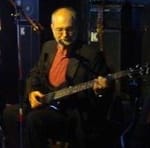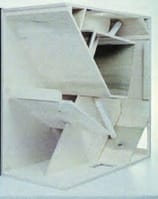- Posts: 142
- Thank you received: 5
Why Cubo subs work so well ?
- bjm362
-
 Topic Author
Topic Author
- Offline
- Premium Member
-

If you are thinking for one minute I am in any way suggesting Cubo has given false or misleading results, you are completely wrong.
I am convinced he not only is an honorable person,but also has repeatedly successfully acheived those wonderful results!
I am just trying to understand WHY it works so well !!!
Please Log in or Create an account to join the conversation.
- bee
-

- Offline
- Platinum Member
-

- Posts: 2090
- Thank you received: 34
if the driver was in a sealed box, on a horn the same as the cubo, it would not play as low...... the driver placement has a lot to do with why this cab works.....
Please Log in or Create an account to join the conversation.
- bjm362
-
 Topic Author
Topic Author
- Offline
- Premium Member
-

- Posts: 142
- Thank you received: 5
bee wrote: mr cubo him self would be the best person to answer this..... But its not a conventional horn........ the driver fires into the mouth and into the horn throat, the length of the horn is relitive to the length of the sound wave to keep everything in line..... a very clever design.....
if the driver was in a sealed box, on a horn the same as the cubo, it would not play as low...... the driver placement has a lot to do with why this cab works.....
Are you saying that by placing the driver in the mouth of the horn he is getting benefits of the horn from both sides as well as coupling the waves in phase from both front and back of the driver? BTW,thats what I really think is happening. The math to do this would be different than standard horn theory I am familiar with.
If so he has accomplished something I have been planning to attempt by a diferent method! Also his method results in significantly smaller cabinets !!! Thats a definite plus !
Please Log in or Create an account to join the conversation.
- bee
-

- Offline
- Platinum Member
-

- Posts: 2090
- Thank you received: 34
bjm362 wrote:
bee wrote: mr cubo him self would be the best person to answer this..... But its not a conventional horn........ the driver fires into the mouth and into the horn throat, the length of the horn is relitive to the length of the sound wave to keep everything in line..... a very clever design.....
if the driver was in a sealed box, on a horn the same as the cubo, it would not play as low...... the driver placement has a lot to do with why this cab works.....
Are you saying that by placing the driver in the mouth of the horn he is getting benefits of the horn from both sides as well as coupling the waves in phase from both front and back of the driver? BTW,thats what I really think is happening. The math to do this would be different than standard horn theory I am familiar with.
If so he has accomplished something I have been planning to attempt by a diferent method! Also his method results in significantly smaller cabinets !!! Thats a definite plus !
yes i think this is the way i see it......... im hoping cubo can explain a bit more.....
Please Log in or Create an account to join the conversation.
- MAutopsy
-

- Offline
- Platinum Member
-

- Posts: 361
- Thank you received: 0
Please Log in or Create an account to join the conversation.
- Cubo15
-

- Offline
- Platinum Member
-

- Posts: 935
- Thank you received: 133
Best regards
Cubo
Please Log in or Create an account to join the conversation.
- bjm362
-
 Topic Author
Topic Author
- Offline
- Premium Member
-

- Posts: 142
- Thank you received: 5
Cubo15 wrote: That's a difficult one as it's explainable from so many different angles, I'll have to get back on that on Tuesday. In the mean time read up on tapped horns a bit (hint Tom Danley's post on the subject on diyaudio.com (subwoofer forum)), that will narrow down the amount of angled views.
Best regards
Cubo
Can I get a bit of help with that! I went to diyaudio.com and did a number of searches using Tom Danley and the results were overwhelming! Maybe you could post a link (PLEASE) !!!!
Edit: I did a Googlesearch for "tapped horn explained" and came up with this "white paper" by Tom Danley. docs.google.com/viewer?a=v&q=cache:qqQ4r...4xFBvKoUzoNw4uERTvXw
I found the article VERY interesting and hope we can have further discussion on this !
Please Log in or Create an account to join the conversation.
- bjm362
-
 Topic Author
Topic Author
- Offline
- Premium Member
-

- Posts: 142
- Thank you received: 5
Danley first claims that the excursion of the tapped horn is much reduced compared to ported cabinet of equal output,then he states that a tapped horn driver requires almost twice the xmax.
One of these is not true.
If the latter is not true I would be very interested in building some variation of a tapped horn.
If the latter is true (therefore the former incorrect) I would be forced to re-evaluate Tom Danley's conclusions.
BTW, I am still very impressed with Cubo's work! There is no denying the wonderful results he has been able to prove repeatedly!
Please Log in or Create an account to join the conversation.
- Cubo15
-

- Offline
- Platinum Member
-

- Posts: 935
- Thank you received: 133
Personally I see tapped horns as a form of band pass enclosures (with very abstracly seen) series tuned ports. BP enclosures often by choice limit band width in return for higher output within that band width.
Unlike a normal 6th order BP on a certain frequency(band-ish) the driver Sd is doubled.
Tapped horns are ussually designed with minimal chamber volumes in mind. In Cubo-ish designs (ARLS, T18, Bootybass) horn path length is replaced with chamber volume,
creating series tuned chamber/ ports. This often needs a large step up in chamber volume to work correctly.
The first Cubo prototype was configurable as both front loaded and rear loaded (tapped BP) horn, where both horns have the exact same horn dimensions and chamber volume, and the exact same internal/external volume.
The rear loaded version was much louder but less deep extending, resulting in the second prototype: A reduced horn mouth to reduce SPL at Fc-high and lower the tuning accordingly.
Best regards
Cubo
Please Log in or Create an account to join the conversation.
- bjm362
-
 Topic Author
Topic Author
- Offline
- Premium Member
-

- Posts: 142
- Thank you received: 5
Its implied in the last two paragraphs of page 2,but I am not sure he didn't mean the inverse of what he said. Thats why I brought attention to it.Cubo15 wrote: I can not find the part were Danley supposably states that the tapped horn driver needs twice the Xmax, only that it has twice the Xmax.
Anyway you look at it your design is a success !!!Cubo15 wrote: Personally I see tapped horns as a form of band pass enclosures (with very abstracly seen) series tuned ports. BP enclosures often by choice limit band width in return for higher output within that band width.
Unlike a normal 6th order BP on a certain frequency(band-ish) the driver Sd is doubled.
Tapped horns are ussually designed with minimal chamber volumes in mind. In Cubo-ish designs (ARLS, T18, Bootybass) horn path length is replaced with chamber volume,
creating series tuned chamber/ ports. This often needs a large step up in chamber volume to work correctly.
The first Cubo prototype was configurable as both front loaded and rear loaded (tapped BP) horn, where both horns have the exact same horn dimensions and chamber volume, and the exact same internal/external volume.
The rear loaded version was much louder but less deep extending, resulting in the second prototype: A reduced horn mouth to reduce SPL at Fc-high and lower the tuning accordingly.
Best regards
Cubo
I just can't afford too pricy of a driver but want to be sure I buid something tha works well so Iam trying to understand it as much as possable!
It will be at least spring,and maybe summer before I can possably do something like this, but I am trying to be prepared!!!
Please Log in or Create an account to join the conversation.